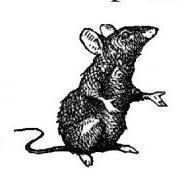
echo449
-
Posts
249 -
Joined
-
Last visited
-
Days Won
1
Reputation Activity
-
 echo449 got a reaction from poliscar in Faculty who know theory vs know texts
echo449 got a reaction from poliscar in Faculty who know theory vs know texts
Period matters more than theory, period. Since you'll be on the market as a Victorianist, you should privilege programs w/ Victorianist scholars. You can be the person to bring back Husserl, or whoever, but the market will care much more about your grounding in your field as such, since that's what you'll be teaching. Also, a lot of advisors will let you do the work you want to do--the dissertation phase, for better or worse, is a lonely place.
-
 echo449 got a reaction from Dr. Old Bill in Interdisciplinary programs with a focus on psychoanalysis
echo449 got a reaction from Dr. Old Bill in Interdisciplinary programs with a focus on psychoanalysis
There's no reason that you wouldn't be able to do a psycho-analytic project at many English programs. Why do you need to be in an interdisciplinary program specifically? Do you intend to make contributions to the field of psychoanalysis as such? Look for programs w/ faculty who are doing psychoanalytic projects--I bet you'll find a decent amount in "traditional" departments as well. Psychoanalytic criticism is pretty "standard," as far as it goes, as an approach within our field.
(Depending on what kinds of psychoanalytic projects you might be envisioning, you might even be *old-fashioned*!)
-
 echo449 got a reaction from AnimeChic101! in What writing sample to use
echo449 got a reaction from AnimeChic101! in What writing sample to use
FWIW, I was at a dinner a few months back with a group of Early Modernists and Victorianists, and almost all of them had written on modernists for their writing samples, though they had explained in detail in their statements of purpose the relevance of their submissions to their projected fields.
-
 echo449 got a reaction from dr. t in Do I need to revise this paper?
echo449 got a reaction from dr. t in Do I need to revise this paper?
Your grade is your grade. I don't think you have to worry about revising it. One thing you have to remember is that we are only small parts of our professors lives--it's tempting to give in to a kind of paranoid "what are they thinking when they blinked twice during our meeting last week" kind of mindset, but it is never helpful. Plus, it's the summer, when many people avoid emails to relax/finally work on their own projects. That you received a lot of comments that were critical is not necessarily bad; you can write an "A" paper that is still nowhere near where it could be w/ further revision.
So, my advice: revise if you want to work on this topic further, don't if you don't. Don't worry about ruining your relationship w/ the professor; it seems pretty clear that she is invested in your progress.
-
 echo449 reacted to fuzzylogician in Do I need to revise this paper?
echo449 reacted to fuzzylogician in Do I need to revise this paper?
Did other students get a grade on their papers? She may have just thought that the final grade directly implies a grade for the paper and that's enough. It is possible for her to change the grade later but I don't think it's likely. However, you will have to ask her to be sure. That said, the grade itself shouldn't matter that much. What matters is the feedback that you got and what you do with it. I think it's worth thinking about why the particular grade matters to you so much, and try to move past that.
As others have said, an "A" (or even "A+") paper doesn't have to be perfect or even close to it. It could very well be unoriginal and vague. It may still require a lot of work to get anywhere near publishable, especially with early projects, and it may not be publishable at all. The fact that you got a lot of suggestions for improvement doesn't mean it wasn't a good enough paper for the purpose of the class. That's another thing you'll learn with time: the requirements for a class are different than those for theses or qualifying papers and those again are different from publications. Sometimes all you need is good enough. Not every topic you write a paper for a class on will become something you will want to engage with more deeply. Over time you'll learn to identify the point of diminishing returns for a particular paper or project, depending on your level of interest in it and where it is submitted. It doesn't have to be perfect, or even close to it.
-
 echo449 got a reaction from Isabelarch in Do I need to revise this paper?
echo449 got a reaction from Isabelarch in Do I need to revise this paper?
Your grade is your grade. I don't think you have to worry about revising it. One thing you have to remember is that we are only small parts of our professors lives--it's tempting to give in to a kind of paranoid "what are they thinking when they blinked twice during our meeting last week" kind of mindset, but it is never helpful. Plus, it's the summer, when many people avoid emails to relax/finally work on their own projects. That you received a lot of comments that were critical is not necessarily bad; you can write an "A" paper that is still nowhere near where it could be w/ further revision.
So, my advice: revise if you want to work on this topic further, don't if you don't. Don't worry about ruining your relationship w/ the professor; it seems pretty clear that she is invested in your progress.
-
 echo449 got a reaction from ExponentialDecay in Literary Theory?
echo449 got a reaction from ExponentialDecay in Literary Theory?
The easiest way is to find a contemporary book, such as Levine's recent Forms, and to look at what she's citing. Even one book w/ a decent bibliography will probably open up more doors than you could possibly chase down--and that's okay! The dirty secret of a thesis (whether it's a diss, a Master's Thesis, or an honors thesis in undergrad) is that it's not finished when you've done all the work you possibly can and have read everything, it's finished when your time in the program is up.
-
 echo449 got a reaction from sarabethke in Literary Theory?
echo449 got a reaction from sarabethke in Literary Theory?
Everything poliscar said is correct. I just want to offer some (admittedly unsolicited) advice on your thesis: you will not be showing your awareness of critical debates in literary studies or contemporary theory if you do a structuralist reading of a text unless you demonstrate why structuralism should not have been superseded by other approaches, and what it has to offer today in our "post-critical" climate. This doesn't need to be a major part of your thesis, but structuralism is not considered current & it doesn't really reflect current approaches to theory. This is not to say "if you write on this, you will not get in," but it is to say that, if you go ahead with this approach, you need to do extra work to justify its application.
-
 echo449 reacted to poliscar in Literary Theory?
echo449 reacted to poliscar in Literary Theory?
To chime in—there are scholars working right now whose work could be seen as having structuralist aspects. People like Caroline Levine, Alex Woloch, Sandra Macpherson, even Franco Moretti, all seem to have their own moments of structuralism. I've also noticed what seems to be a renewed interest in Propp and Greimas, which I find intriguing.
In this vein, echo449 is completely right about the necessity of engaging with contemporary work. Even though there's a lot of divergent work falling under the umbrella term of New Formalism, you might find some of it to resonate with your interests in structuralism. Likewise, if your thesis is on Medieval lit, Julie Orlemanski at UChicago is doing really stellar stuff that you might want to look at. Specifically, her article "Scales of Reading" in Exemplaria is really wonderful, and covers a lot of ground in terms of glossing different approaches.
-
 echo449 got a reaction from poliscar in Literary Theory?
echo449 got a reaction from poliscar in Literary Theory?
That's normal for undergrad! It's useful to try out different ways of thinking, for sure. And, also, you can always write something and then re-purpose it--in other words, you can write this paper on structuralism, then, when you are applying, do some extra tinkering to insert yourself into dialogue w/ current people. My tone in the original post was a little too dismissive--you should totally pursue this line of inquiry if it's the road you want to go down. If you have the time to do so, it might be interesting to take a look at the first part of Cusset's French Theory, which really usefully lays out the historical reception of structuralism in the United States.
-
 echo449 got a reaction from Dr. Old Bill in Literary Theory?
echo449 got a reaction from Dr. Old Bill in Literary Theory?
Everything poliscar said is correct. I just want to offer some (admittedly unsolicited) advice on your thesis: you will not be showing your awareness of critical debates in literary studies or contemporary theory if you do a structuralist reading of a text unless you demonstrate why structuralism should not have been superseded by other approaches, and what it has to offer today in our "post-critical" climate. This doesn't need to be a major part of your thesis, but structuralism is not considered current & it doesn't really reflect current approaches to theory. This is not to say "if you write on this, you will not get in," but it is to say that, if you go ahead with this approach, you need to do extra work to justify its application.
-
 echo449 got a reaction from ExponentialDecay in Literary Theory?
echo449 got a reaction from ExponentialDecay in Literary Theory?
Everything poliscar said is correct. I just want to offer some (admittedly unsolicited) advice on your thesis: you will not be showing your awareness of critical debates in literary studies or contemporary theory if you do a structuralist reading of a text unless you demonstrate why structuralism should not have been superseded by other approaches, and what it has to offer today in our "post-critical" climate. This doesn't need to be a major part of your thesis, but structuralism is not considered current & it doesn't really reflect current approaches to theory. This is not to say "if you write on this, you will not get in," but it is to say that, if you go ahead with this approach, you need to do extra work to justify its application.
-
 echo449 got a reaction from Ramus in Literary Theory?
echo449 got a reaction from Ramus in Literary Theory?
Everything poliscar said is correct. I just want to offer some (admittedly unsolicited) advice on your thesis: you will not be showing your awareness of critical debates in literary studies or contemporary theory if you do a structuralist reading of a text unless you demonstrate why structuralism should not have been superseded by other approaches, and what it has to offer today in our "post-critical" climate. This doesn't need to be a major part of your thesis, but structuralism is not considered current & it doesn't really reflect current approaches to theory. This is not to say "if you write on this, you will not get in," but it is to say that, if you go ahead with this approach, you need to do extra work to justify its application.
-
 echo449 got a reaction from poliscar in Literary Theory?
echo449 got a reaction from poliscar in Literary Theory?
Everything poliscar said is correct. I just want to offer some (admittedly unsolicited) advice on your thesis: you will not be showing your awareness of critical debates in literary studies or contemporary theory if you do a structuralist reading of a text unless you demonstrate why structuralism should not have been superseded by other approaches, and what it has to offer today in our "post-critical" climate. This doesn't need to be a major part of your thesis, but structuralism is not considered current & it doesn't really reflect current approaches to theory. This is not to say "if you write on this, you will not get in," but it is to say that, if you go ahead with this approach, you need to do extra work to justify its application.
-
 echo449 got a reaction from unræd in Literary Theory?
echo449 got a reaction from unræd in Literary Theory?
Everything poliscar said is correct. I just want to offer some (admittedly unsolicited) advice on your thesis: you will not be showing your awareness of critical debates in literary studies or contemporary theory if you do a structuralist reading of a text unless you demonstrate why structuralism should not have been superseded by other approaches, and what it has to offer today in our "post-critical" climate. This doesn't need to be a major part of your thesis, but structuralism is not considered current & it doesn't really reflect current approaches to theory. This is not to say "if you write on this, you will not get in," but it is to say that, if you go ahead with this approach, you need to do extra work to justify its application.
-
 echo449 reacted to poliscar in Literary Theory?
echo449 reacted to poliscar in Literary Theory?
I feel like there should be some sort of warning on every English department website, that says "you can't specialize in Theory."
You need some sort of historical & geographical specialization; that's how you professionalize. When you prepare for your qualifying exams, they will be rooted in a specific area, even if you choose subfields in Feminist Theory or Marxism, etc. All programs, regardless of theoretical intensity or involvement, will have students ground their work in a concrete area/archive.
"Theory" is not a concentration—it's a massive body of work, with an incredible range of approaches. Saying you want to specialize in it is akin to saying you want to specialize in Literature. Moreover, it won't get you a job; departments very rarely conduct job searches for "theorists." That doesn't mean they don't hire or employ them, but that the scholars in question were almost always hired as Romanticists, or Modernists, or 20th Century Americanists (etc).
My advice would be to find an area you want to work in, write your thesis on something relevant to it, and then apply with the intent of focusing on said area. You might end up with something like "American Modernism, Psychoanalysis, Marxism, and Affect" as a rough outline of your interests. However, I can't stress enough that Theory is not, not, not, not enough.
-
 echo449 got a reaction from Dr. Old Bill in Fall 2017 Applicants
echo449 got a reaction from Dr. Old Bill in Fall 2017 Applicants
@aob981, I don't want to discourage you from applying to American Studies programs--as I think that the fact that your writing sample is on film makes clear a commitment to interdisciplinary work--but you should keep in mind that AS programs have worse placement rates than their English counterparts, except at the very top. Interdisciplinary/cultural studies programs do not do as well as they did a decade or two ago, as the market has gotten worse. Not to be a downer, but that's kind of important.
Secondly, if you are applying to English departments...you really ought to have a writing sample that involves the close reading of literature. Film is not considered "in field" in most departments--it may be "in period," but only in the same way a fresco is "in period" to an early modernist. This is not to say you cannot work on the intersection of film and literature--I read a decent amount of film theory myself--but that, since many of the programs you're applying to won't have the faculty necessary to do a dissertation on film, a film writing sample could well announce you as a poor fit for the department, right off the bat.
Thirdly, and I'm just going off of my personal experience here: contacting PoI's doesn't really matter. I got lovely responses from schools that rejected me; completely ignored by schools that recruited me heavily once offers went out. But! YMMV.
Fourthly, cuz I'm just editing this post as I browse the internet and realize I have more to say, not having big deal recommenders won't hurt you. I mean, it certainly helps to be anointed by Stephen Greenblatt after doing yr undergrad at Harvard, but that's not a pre-requisite for getting into a top program.
Fifthly, (see how I'm really just going about this at random?), being older and applying after having been out of school is DEFINITELY not an issue in the humanities. While certain programs tend to attract people going straight through, a lot of programs tend to have average ages in the mid-twenties. I was on the younger side of my cohort by starting at 23. You just need to make sure that your writing sample and SoP demonstrates your current knowledge of the field...something even recent undergrads may not know a lot about, given how many undergrad curriculums are structured.
Can you tell us the whole list of schools that you have right now?
-
 echo449 reacted to Warelin in Application timeline/plan
echo449 reacted to Warelin in Application timeline/plan
As a side, most applicants don't contact a POI for English. Contacting a POI is much more common in the sciences than it is for the humanities.
-
 echo449 got a reaction from sarabethke in Application timeline/plan
echo449 got a reaction from sarabethke in Application timeline/plan
I decided to write something from scratch to apply with; I didn't have a draft ready until roughly Halloween. Because I took so long to get it done, none of my letter writers even saw the finished version of my sample, which I would revise daily. I didn't have a draft of my statement of purpose until Thanksgiving, but my letter writers were incredibly helpful and supportive during the week that I had to make it presentable. My advice is to not do what I did, cuz it almost killed me. I did, however, talk to my letter writers the summer before, making sure that they knew relatively early in the process that I was going to ask them for letters.
-
 echo449 got a reaction from sarabethke in Conferences
echo449 got a reaction from sarabethke in Conferences
Do as many conferences as you like, where "like" means: 1) you are not paying substantial amounts of money (and departments vary on how much they can fund students; my own department gives preference to national rather than regional conferences for funding) and 2) working on conference papers is not detracting from your actually required work. You don't need to do that many conferences per year, so it's up to what you think will benefit your projects.
-

-
 echo449 reacted to Romanista in Fall 2017 Applicants
echo449 reacted to Romanista in Fall 2017 Applicants
I can definitely see the hypocrisy of creative writing faculty advocating for the working approach to writing, as opposed to the "get an MFA" approach, and I've witnessed that in my own program (though I'm not an MFA student). You are right that independent scholars and inbetweeners exist, but how many of those are out there in comparison to people who have a day job and write creatively on the side? The latter group is surely much larger.
Creative writers have the potential to reach a mass audience, the proverbial average American reader who just wants a good story, and yet they still resort to couching their work in academic terms. And for what reason other than their own personal comfort? Is it to make themselves feel important? What is their motivation?
Creative writers can have a dynamic and diverse readership of people who can enjoy their work without having a college education. They can reach millions theoretically. The typical academic can't do that, because they are working within a specialized discourse community that academics from other fields (let alone the average person) probably can't fully understand because of their lack of training in that subject.
And yet these MFA people eschew this potential to reach a wide audience and I don't understand why they throw away that potential power. Is reaching a wide audience selling out? I just can't believe why someone would throw away that potential, to actually touch people's lives, to have people read their work not because they are expected to as professionals, but because they want to, because they would rather do that than watch HBO.
The MFA has made creative writing elitist. Academia must be elitist but I don't think that creative writing must be elitist, because it hasn't up until the widespread adoption of MFA cash cow programs. Creative writing is not an academic discipline. It has been co-opted into one because it makes universities a ton of money. And if you advocate getting a graduate degree in creative writing, you are part of the problem.
I say that creative writing is non-academic with a lot of respect. I don't think parenthood, or friendship, or a good home cooked meal are scholarly disciplines, but I think all of these things are extremely important. I think they are all more important than any abstract academic field. But the way to practice them is to actually live outside of the protective bubble of academia, which is not an ivy tower but is nevertheless sheltered from the real world. And readers generally want to hear about the real world more than they do about academia when it comes to creative writing because let's face it...being a professor is not very cinematic or exciting to someone with no experience in a given field. That explains why we have so many cop, lawyer and physician TV shows and movies but so few of either about scholars.
Perhaps we have a different opinion on creative writing. I do both creative and academic writing, but I see the former as entertainment. I don't think novelists or poets or playwrights or essayists are anything more than entertainers. I say this with the utmost respect, because I think that creative writing is really more important than any academic discipline in that it expresses the human experience far better given its primal nature, given that anyone can do it (but comparatively few can do it well). I think we need entertainers more than we need scholars. But the distinction between literary artists and writers who entertain is not just semantics, it is foregrounded by the elitism that the MFA machine has spread in the last fifty years or so.
This is all to say nothing about the other concerns I have about MFA programs, like the relationship between creative writing professors and students being different than that of working writers and editors, to the lack of useful feedback in workshops (given how criticism about the work is automatically criticism of the writer now since everyone is a hater), to the religious adherence to the more workshoppable short story (even though the non-MFA public doesn't want to read short stories), to the solipsistic trend toward creative nonfiction, which seems to advocate for twenty five year old writers who went straight from high school to undergrad to an MFA program publishing their diary entries under the guise of an essay, even if they are not famous and in fact lead boring lives (to all outward appearances).
-
 echo449 got a reaction from ratanegra19 in Moving from English to Cultural Studies
echo449 got a reaction from ratanegra19 in Moving from English to Cultural Studies
Hurm. Is Rutgers amenable to cross-disciplinary work? As a student here currently, I would say "yes," but I would add that we restrict coursework outside of the department in ways that other programs do not (for the better, IMO). If you'd like to talk about this sort of work more, and the possibilities that are open to prospective students, feel free to PM me. This is not to say that inter-disciplinary work is not done at Rutgers (Josh Gang, who you were referred to in another thread, is actually a Rutgers grad), but I think you have to approach that sort of work differently here than in other departments.
-
 echo449 got a reaction from Ramus in Conferences
echo449 got a reaction from Ramus in Conferences
Do as many conferences as you like, where "like" means: 1) you are not paying substantial amounts of money (and departments vary on how much they can fund students; my own department gives preference to national rather than regional conferences for funding) and 2) working on conference papers is not detracting from your actually required work. You don't need to do that many conferences per year, so it's up to what you think will benefit your projects.
-
 echo449 got a reaction from MargeryUnkempet in Choosing Specialization?
echo449 got a reaction from MargeryUnkempet in Choosing Specialization?
So, a couple things, MargeryUnkempet: First, graduate programs view the specialization that they accept you in as a fiction, to some degree. They expect that someone in every cohort will switch their field, especially in departments with multiple strengths. And that's okay! I've actually drifted forward in time by a couple decades for my focus, and that's okay. In short, the specialization you apply in is not the research project you will have to follow for your entire graduate career.
Secondly, one thing you can do is to go read a bunch of secondary literature in different periods. While reading, ask yourself: Who are the faculty members doing projects that I find the most exciting? What themes do I find myself drawn to? What period would allow to work on those themes in ways that I would find interesting? I bet once you start asking yourself those questions, you'll figure it out.








